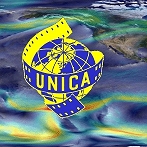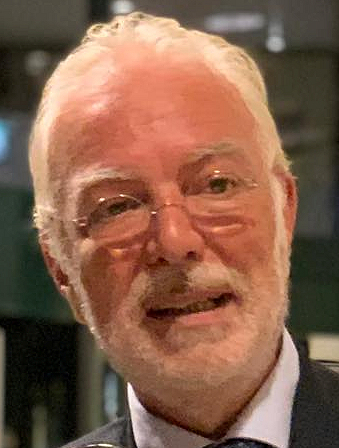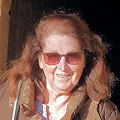
GENERAL ASSEMBLY, Zeist, Netherlands
30th August 2019 14:00
Page 3
Committee Members Attending
Dave Watterson (President)
Andrzej Przeździeck(Vice-President)
Bernhard Lindner (Vice-President)
Jacqueline Pante (Secretary General)
Thomas Kräuchi (Treasurer)
Advisers:
Tatyana Alahverdzhieva
Wolfgang Allin
Mitze Chapovski
Zuzana Školudová
Franka Stas
Eugy Van Gool
Mike Whyman
Also Present
Kees Tervoort (President of the Congress)
Serge Michel (IFTC Liaison)
Stefan Eich (Translations)
Romy Van Krieken (Translations)
Sarah Materna (Translations)
Members Present
Austria
Belgium
Bulgaria
Czech Republic
Estonia
Finland
France
Germany
Italy
Liechtenstein
Luxembourg
Netherlands
North Macedonia
Norway
Poland
Romania
Russia
Slovakia
South Korea
Spain
Sweden
Switzerland
United Kingdom
Ukraine
(continued from page 2)
Austria – Georg Schörner: As national organisation we might have problems with the titles in French and English. Authors may disagree with our translations. It must be other way around: the author knows her or his film and completes the application as for any other festival. It would be enough if UNICA informed the national organisation about title and author asking if that film has the authorisation to participate.
Dave Watterson: We are not a festival where authors submit their films. We are a festival between countries. It is up the countries to choose the films and to submit them to UNICA. There is a strict time limit on national programmes, therefore the countries need to know the film length, before they submit the titles.
Each national organisation should know the basic information about each film they submit.
The problem of title translations has come up many times. In recent years we have assumed that the National Organisations are more likely to have access to good translators, than the authors. This is a special problem in countries which do not use any of the UNICA languages.
Dave Watterson: if there are detailed recommendations about the forms, send them to the President directly.
Finland – Pentti Kemppinen: the Finish delegation believes the current system works well.
Switzerland – Fred Graber: in Switzerland, if we talk about UK we talk about the Queen, but less affectionately about the Brexit. What should we expect from this if we come to Birmingham?
UK – Allan Atkinson: I would love to be able to answer that. No one knows, what is going to happen. I do not think the situation will make travel difficult. We will do everything to help you to come.
Dave Watterson: for Visa some nations would need a personal invitation, if you need such an invitation, I’ll write one and I hope the visa cost is affordable.
Germany – Marcus Siebler: A general question: I would like to know why the authors have not been asked to speak during the public jury discussion after the film blocks as in earlier years? As a festival organiser I have seen that the filmmaker likes to speak up, even if briefly, and the audience likes to have a face behind the film. On top of that it is an appreciation for the filmmaker, some of them come at their own cost, and travel many miles, and they deserve a minute on the stage.
Dave: The biggest problem we have is time. If we gave for discussions with authors, how long would a UNICA be? Generally, the duration of UNICA is always in discussion and is likely to be discussed at the next committee meeting.

Part 2
- Film Librarian's Report
- "Friends of UNICA" Report
Patronage Report
Report from CICT/IFTC - Admission of new members
- Proposals by Committee
- Place and dates of next meetings
- Farewell to Jeanne Glass
- Miscellaneous without a vote
Papers
Serge Michel: asked out of the 150 films in Zeist how many authors were present?
Dave Watterson: replied we do not know. As an example, a Dutch author might have come for a day, and would never be registered.
Liechtenstein – Rolf Leuenberger: explained that he had been asked by the local organiser not to invite the authors on the stage. He has also been asked by the committee not to ask the jury which film of the country was their personal favourite. This year there had been several countries with many films (6,7 even 9) therefore the jurors were asked to make just one statement per film on the stage. Each jury member had the opportunity to select which film to talk about.
Jacqueline Pante: noted the discussion was drifting away from the agenda point.
Dave Watterson: said that if there were any ideas for general change to the way UNICA is organised, please send them to him and they will be considered in the committee.
b) 2021: Poland
Andrzej Przeździecki: we’ll have to wait until the outcome of the Polish elections in October before we have a final decision. Many things depend on the financial situation.
Austria – Georg Schörner: If information is available, the sooner the better. If the decision is positive, where and when will the UNICA take place?
Poland – Andrzej Przeździecki: It will be in Warsaw, likely at the end of August, as in Zeist.
Dave Watterson We could not be absolutely certain about the Polish confirmation for political reasons, but everything else seemed promising. He therefore proposed, that we formally confirm the decision to go to Warsaw in 2021.
Approved unanimously.
Dave Watterson: added that if Warsaw is not possible, we will make emergency arrangements.
Andrzej Przeździecki: notes that with UK, Poland and Ukraine, it is an example of how challenging the organisation of a UNICA can be. We do not know how the situation in Europe will develop, so UNICA must stick together. We should consider what the situation will look like with the countries in the coming years.
Romania – Viorel Ieremie: added that as a former organiser of UNICA, he knew you need connections with the local authorities, which are not always politics but mainly administration. When he organised UNICA he looked for those who were in charge of the money.
Andrzej Przeździecki: thanked him for the comment.
c) 2022: Ukraine
Dave Watterson: we did not have to make an absolute decision at this moment, but we had a formal offer from the Ministry of Culture to invite us to have the Festival in Ukraine. He invited the Ukrainian delegates to speak about the offer.
Ukraine – Ievgen Maksymov : they invited all the UNICA friends to Ukraine. He hoped, that the problems they were facing at the present would solved in two years time. Ukraine has many things to offer: culture, nature, pretty women and music. He extended a welcome to all.
The UNICA would be in Kherson near Odessa. There were flights from Istanbul and Munich. The time would probably be 5.-10.9.2022. Kherson has several facilities to offer.
Dave Watterson: reported that he and his wife went to the festival in Kherson last year. It is very easy to fly to Kiev, from which there are several connections to Kherson. It is simple to reach and not expensive. It is a university town, a lively small town with good museums. There was a slight lack of top-quality hotels to choose. The local cultural Minister was very helpful. It would be a chance to have a UNICA in a new country. Today will not be a final decision, but a positive vote would give confidence to the organisers and will require the committee to visit it. We might ask the organiser to do it earlier than 5-10 September.
Ievgen Maksymov: it might be difficult to change the date due to financial reasons.
Dave Watterson – I propose that we plan to have UNICA 2022 in Ukraine.
Approved unanimously.
21- Farewell to Jeanne Glass
Dave Watterson: at last years elections we had many surprises. One of the sad ones was, that Jeanne Glass came off the committee after serving for 12 years as vice president. She was a tower of strength. She consistently reminded us about the importance of
France in the film world. She has reminded us of the important foundations of UNICA. She had very strong sense of what was right or wrong for UNICA. A great pleasure is that free of the restraints of a committee role, Jeanne Glass will speak up for UNICA, France and the foundations of UNICA.
He thanked Jeanne Glass and presented her with an inscribed glass shield.
Applause for Jeanne Glass
22 - Miscellaneous, without vote
Romania - Viorel Ieremie: said he felt like Don Quixote fighting against windmills on the subject of the lower age limit for participants in the YUW (Young UNICA Workshop). He was aware of the committee opinion. He wanted to suggest again that the lower age limit be reduced to sixteen. He knew many younger film makers who were eager to participate and who had the skills. Within the workshop they would learn a lot.
From last year’s discussion he understood there are two reasons why the age of 18 is mandatory: incompatibility between younger and older participants; and the legal responsibility of having younger people in the group.
His experience at former UNICA’s (Slovakia 2014 and Romania 2016) showed compatability was not a problem for anyone.
The option to send or not to send participants of minor age, must be with the national organisation submitting them. Someone of the delegation has, as a matter of fact, the responsibility for them. The organisation committee’s responsibility is to offer an adequate and safe working space.
Dave Watterson: UNICA does not decide the age range of the workshop. The YUW is the responsibility of the hosting country. It is very much a local question of what they can and cannot do. This year the decision of the Netherlands was not to have minors and we had to respect this. UK had not yet taken a decision yet.
We would not repeat the discussion we had last year.
Germany – Marcus Siebler: From the German point of view the WMMC was rather disappointing as neither of our movies was selected. I would like to have a formal written explanation of the selection criteria.
Dave Watterson: every year there are more entries for the WMMC. The nature of the competition means there is space only for 16 movies. An international jury is selected from countries which are changed every year. This year there were jurors from Slovakia, Italy, Romania, Bulgaria and Spain.
Romania – Viorel Ieremie: The decision is mainly a question of like or dislike. On top of that the length is paramount: 60 seconds, not a second more.
Germany – Marcus Siebler: I understand that there are no written criteria for the selection. The jury will for sure apply within their own preferences, but the real jury is the audience, this should be considered within the selection. It is important to include it in the minutes of the GA.
Dave Watterson: whenever any jury decides some people will disagree. It is not a matter for the GA. He invited the German delegation to send a letter to the committee, which will consider the matter separately.
Final remarks from the President
Thanks to the town council of Zeist for the wonderful facility we have had for the General Assembly. Thanks to the hard-working translators and to the delegates for taking part.
Hearty applause for the translators.
The General Assembly closed at 17:25
